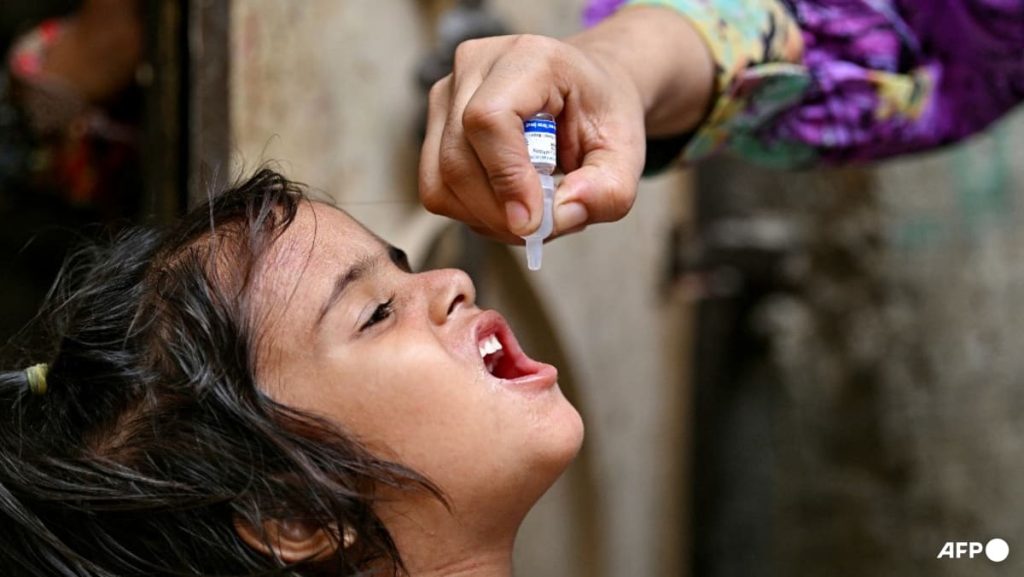Listen to the article
Pakistan’s northwestern province of Khyber Pakhtunkhwa has become the epicenter of the country’s ongoing polio crisis, accounting for 18 cases this year—more than half of all reported cases nationwide. The troubling concentration of cases highlights the persistent challenges facing Pakistan’s efforts to eradicate the debilitating disease.
Health officials point to a dangerous combination of security threats and entrenched vaccine hesitancy as the primary obstacles to effective vaccination campaigns in the region. The province, which borders Afghanistan, has long been a focal point for militancy and security concerns that complicate public health initiatives.
Deep-rooted misconceptions about the polio vaccine continue to hamper immunization efforts. A persistent and entirely false belief that the vaccine is a Western plot to sterilize Muslim populations remains influential in some communities. This conspiracy theory, promoted by hardline clerics and militant groups, has proven difficult to dispel despite extensive education campaigns.
The human cost of these vaccination efforts has been steep. Over the past decade, militants have killed hundreds of police officers and health workers as part of broader campaigns against the Pakistani state and its vaccination programs. Just last week, two police officers guarding polio vaccination teams in the northwest region were killed, according to AFP reports.
“We try to vaccinate them through refusal conversion committees and influencers,” explained Israr ul Haq, spokesperson for the polio eradication program at Pakistan’s National Emergency Operations Centre. This two-pronged approach focuses on both vaccination delivery and community education.
Health authorities have increasingly recognized that success depends not just on logistics but on addressing deep-seated misconceptions. Vaccination teams now work alongside community advocates who can speak to local concerns and build trust in neighborhoods where skepticism runs high.
Madiha Laique, a parent from Khyber Pakhtunkhwa, represents these grassroots efforts to change attitudes. “I tell people in the neighborhood that we’ve been getting our children vaccinated from the start,” she said, “because many from Khyber Pakhtunkhwa still don’t believe in polio vaccines.”
Pakistan remains one of only two countries in the world, along with neighboring Afghanistan, where wild poliovirus continues to circulate endemically. Despite significant progress in recent decades, the country has struggled to achieve complete eradication, with periodic outbreaks undermining progress.
The concentration of cases in Khyber Pakhtunkhwa presents particular challenges due to its complex social and political landscape. The province has experienced decades of conflict that have weakened health infrastructure and complicated access to remote communities.
International health organizations, including the World Health Organization and the Global Polio Eradication Initiative, continue to support Pakistan’s efforts with funding, technical assistance, and coordination. These partnerships have been crucial to the progress made thus far, though clearly more work remains.
Public health experts emphasize that polio eradication requires sustained political commitment, adequate resources, and innovative approaches to overcome both security challenges and vaccine hesitancy. Success stories from other regions of Pakistan demonstrate that eradication is possible with comprehensive strategies that address both the logistical and social dimensions of vaccination.
As Pakistan continues its fight against polio, the experiences in Khyber Pakhtunkhwa underscore the complexity of disease eradication in conflict-affected regions. Beyond the medical aspects of vaccination, addressing security concerns and changing deeply held beliefs remain essential components of the country’s path toward becoming polio-free.
The gradual success of community awareness programs offers hope that with persistent efforts, even the most resistant communities can eventually embrace vaccination, protecting future generations from this preventable disease.
Fact Checker
Verify the accuracy of this article using The Disinformation Commission analysis and real-time sources.




9 Comments
The persistent polio crisis in Pakistan is very troubling. Overcoming the security challenges and vaccine misinformation in Khyber Pakhtunkhwa is critical to achieving full eradication. I hope the government can find effective ways to counter these obstacles.
Polio eradication is such an important global health goal. The Pakistani government faces huge hurdles in Khyber Pakhtunkhwa with militant threats and vaccine misinformation. I hope they can develop strategies to safely deliver the vaccine and win over skeptical communities.
It’s heartbreaking to see the human toll on health workers carrying out these vital polio vaccination efforts in Pakistan. The security threats and conspiracy theories they face are truly daunting. Protecting these frontline workers should be a top priority.
Polio eradication is such an important global health priority. The security challenges and misinformation around the vaccine in Pakistan are really troubling. Hopefully the government can find ways to safely deliver the vaccine and win over skeptical communities.
You’re right, the human toll on health workers is heartbreaking. Protecting them as they carry out these vital vaccination drives should be a top priority.
The militant threats and conspiracy theories fueling the polio crisis in Pakistan are deeply concerning. Overcoming these obstacles to achieve full vaccine coverage will take immense effort and persistence from public health authorities.
It’s alarming to see polio cases concentrated in Khyber Pakhtunkhwa. Combating the entrenched vaccine misinformation in that region is clearly a major challenge. I hope the government can find ways to effectively counter these dangerous conspiracy theories.
The polio situation in Pakistan is quite dire. Security risks and anti-vaccine myths are major roadblocks to eradication. Ramping up community outreach and education seems crucial to overcome this crisis.
It’s concerning to see the ongoing polio crisis in Pakistan. Tackling vaccine hesitancy and security threats will be critical to successful eradication efforts. Education campaigns seem essential to dispel the persistent conspiracy theories around the vaccine.